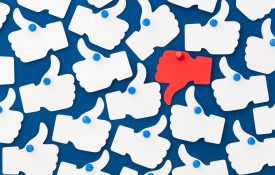-
Parentology: Will the Vinci computer help babies?
Los Angeles Times: A computer for babies may sound like the stuff of science fiction, but a Canadian company has just made it reality. Last month Rullingnet Corp. launched Vinci, a 7-inch touch-screen tablet that sells for $389 to $479 and is marketed exclusively for children 4 and younger. To some parents, Vinci is an exciting, if pricey, step in the future of early childhood education. For others, the idea of buying a tablet for a baby is excessive, if not downright creepy. As Rullingnet points out, this is a serious computer.
-
Tasting Alcohol Helps Our Bodies Process It
It’s not just alcohol that makes us drunk — our thoughts about what we’re drinking can also influence our level of intoxication. That’s what Shepard Siegel of McMaster University concludes in a recent issue of Perspectives on Psychological Science. Siegel focuses on Four Loko, the fruity alcoholic beverage that was once caffeinated — until the addition of caffeine to alcoholic beverages was banned by the FDA. Four Loko has been linked to a spike in alcohol-related hospitalizations on college campuses, but Siegel argues that caffeine was not responsible for the beverage’s dangerous effects.
-
Why Remember What You Can Find Online?
Where do you store important information? According to psychological scientist Betsy Sparrow, the answer isn’t always “in your brain.” Sparrow says that we allow ourselves to forget information that we are confident the people around us (our spouses and friends, for example) will remember. Increasingly, we rely on technology as well. This phenomenon is called transactive memory. To highlight transactive memory, Sparrow and her colleagues asked participants to type 40 facts — such as “an ostrich’s eye is bigger than its brain.” Half of the participants were told that the computer would save their lists and half were told it would not.
-

The ‘Silent Majority’ Agrees With Me, Voters Believe
Psychologists have found that we tend to think people who are similar to us in one explicit way—say, religion or lifestyle—will act and believe as we do, and vote as we do.
-
A ‘self’ portrait of an artist with memory loss
The Washington Post: Art, its creators will tell you, is the result of introspection, the often painful process of digging into the past, into dreams of what might be and nightmares of what was. The painter Marc Chagall, for example, never forgot the tiny, mud-spattered village in Eastern Europe where he grew up. Images of it cropped up in the corners of his works throughout his life. William Faulkner could never have produced his doomed Southern aristocrats without his family’s haunted past, nor could Kurt Vonnegut have written about the horrors of war without the experience of being a soldier. But what happens to an artist whose memory is drained, who has almost nothing to draw on?
-
How Far Will Dolphins Go to Relate to Humans?
The New York Times: In a remote patch of turquoise sea, Denise L. Herzing splashes into the water with a pod of 15 Atlantic spotted dolphins. For the next 45 minutes, she engages the curious creatures in a game of keep-away, using a piece of Sargassum seaweed like a dog’s chew toy. Dr. Herzing is no tourist cavorting with marine mammals. As the world’s leading authority on the species, she has been studying the dolphins for 25 years as part of the Wild Dolphin Project, the longest-running underwater study of its kind. “I’m kind of an old-school naturalist,” she said. “I really believe in immersing yourself in the environment of the animal.” Immerse herself she has.

